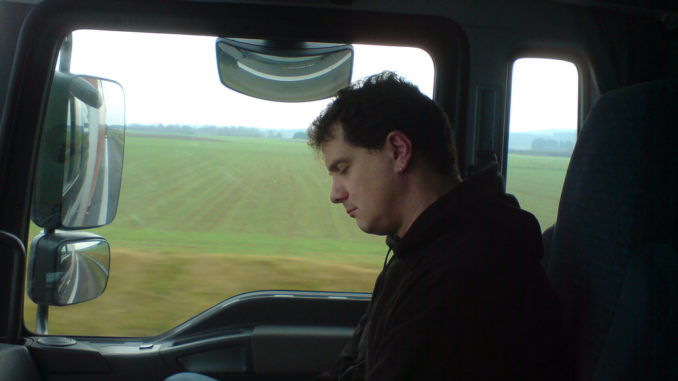
Sleep is critical for truck drivers. Getting enough rest is not only important for the overall health of the driver, but a drowsy truck driver could be a risk to all other four-wheelers on the road.
Long-haul truckers drive extended distances, and some trips (like the long flat highways in Florida) can be sleep-inducing.
Why Are Truckers Especially At Risk?
Truckers need to be able to fall asleep on strict schedules in the small sleeper berth in their cab. This is a difficult skill that is often underestimated.
Because of these conditions, drivers are at high risk of sleeping disorders, such as sleep apnea, and may even need CPAP machines to assist their breathing.
Sleep Study in the News
The above prelude brings us to a new study in the news.
The Sleep Research Centre at the University of Surrey in England recently discovered that a lack of sleep could be detected in your blood and the expression level of your genes.
So what does this mean? It means that if you get pulled over, you may soon be subject to a blood test or even a breathalyzer to judge if you are drowsy.
Laws may soon penalize drivers that are below the appropriate amount of sleep.
Sleep and Hours of Service
The required sleep for truck drivers has already been in the news because of the Electronic Logging Device (ELD) mandate. ELDs enforce a rigid adherence to the Hours of Service rules, which dictate when a driver can rest and when they can drive.
With ELDs mandated in every truck, some drivers feel as if they must use all their allotted driving time, regardless of their level of tiredness or the road conditions.
For and Against
If laws eventually pass against “drowsy driving”, truck drivers could potentially lose a lot of money if they are afraid to drive.
Truckers already get pulled over for a number of regulations, and if they are forced to take a sleep test, they could theoretically lose their CDL over a tiny sleep infraction.
On the other hand, less drowsy drivers could mean that the road is safer for both truckers and non-truckers.
What do you think? Has science gone too far? Should there be drowsy driving laws, just like drunk driving laws?
Let us know in the Class A Drivers forums.
